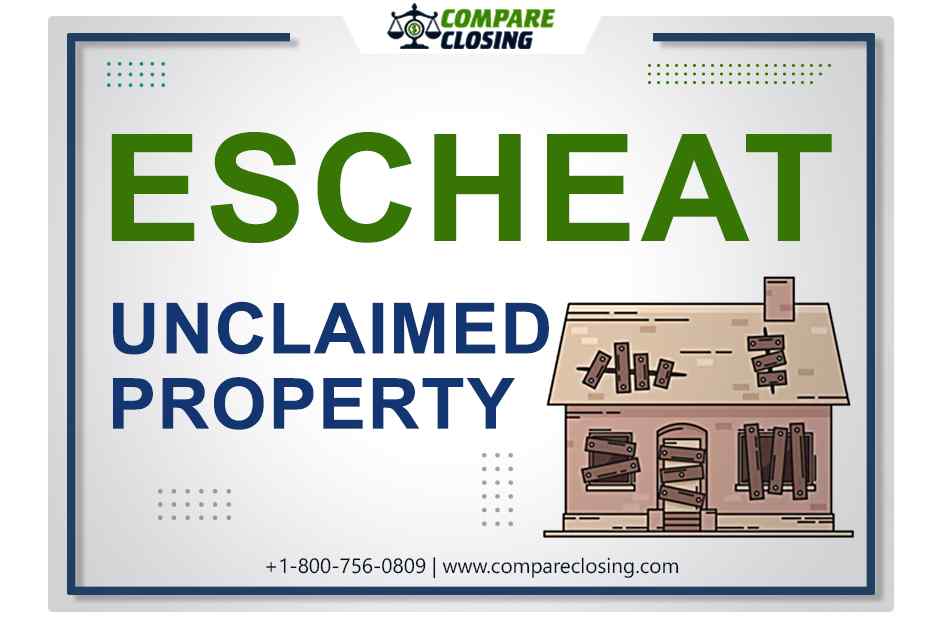Table of Contents
- What Are Netting Escrows & How Does It Work?: The Best Guide - January 2, 2024
- The Secret About Prescriptive Easement: Top Guide 1 Must Know - December 4, 2023
- About Home Equity Loans In Texas And How Can One Obtain It - November 27, 2023
What Is Escheat?
The right of the government to take ownership of estate assets or unclaimed property is referred to as Escheat. It happens when an individual dies without making any will and does not have any heirs.
Even when assets are unclaimed for a prolonged period of time it is known as bona vacantia the escheat rights can be granted. These situations are also referred to as unclaimed property.
This concept maintains that property always has a recognized owner, if no other claimants to ownership exist or are readily identified then it would be the state or government.
Each state jurisdiction of America has its own laws and rules governing escheat rights and related matters.
Understanding escheat in real estate
Escheat is a government’s right on a property after a particular period of time that has been unclaimed for any reason.
These rights can be granted by a court of law or given after a standard time period. Escheat rights may be granted to a state in a probate decision if there is a case of death with no will made or no heirs.
In the United States, each state has its own code of laws governing escheat rights. Usually, properties that have been escheated could be reclaimed later.
Whereas some states may have a statute of limitations, which creates an expiry date beyond which property cannot be reclaimed any longer.
The process of transferring assets to the state is escheatment. If no statute of limitations exists then escheat rights are often maintained on a revocable basis, where extension into perpetuity is allowed.
This implies that if a lawful heir or owner should turn up then the ownership of an estate or property assets could revert.
Estate assets with no will are considered intestate in the case of death. For the final determination, all deaths and death wish usually go through a probate court.
Intestate deaths which involve researching heirs who may be given property assets also go through probate.
Heirs like spouses, siblings, aunts, uncles, nieces, nephews, cousins, other distant relatives are eligible for inheriting assets intestate.
A judge would grant escheat rights to the state if the probate court does not find any heirs for unclaimed assets in death.
When a will or trust is considered flawed and legal heirs to an estate cannot be readily identified then too an escheat may take place.
The identification of heirs in case of intestate deaths drops the need for escheatment. In case the legal heirs are deemed incompetent to manage the inheritance of property and no other rightful heirs can be identified then an escheatment can kick in.
After escheat rights have been granted if a rightful heir comes forward, then the property can be given to such heirs as outlined by laws.
Laws widely differ from one state to another and may include a statute of limitations which may make asset rights unalterable.
When the property has been unclaimed for a long period of time than U.S. states also have processes and procedures for granting escheat rights. Depending on the type of asset and the state the processes and procedures change.
Escheatment of unclaimed assets
The government can grant escheat rights for different types of assets. Assets could be unclaimed securities in accounts that have been dormant for a long duration of time, or real estate property or bank deposits.
Financial institutions and brokerages keep records of inactivity, and they label the inactive accounts as dormant after a stipulated time period. The records of dormant accounts are kept by financial institutions.
And after a specified period of time, which is determined by each state, these accounts are usually required to be turned over to the government.
By law, before finally transferring them to the state through escheatment the financial institutions with dormant accounts should make efforts like sending reminders and issuing notices to locate the owners of these assets.
Depending on the asset type and by the state escheat rights vary broadly. Each state has its time frame and its process for granting escheat rights to the government.
Many a time escheatment occurs automatically for financial accounts after its specified amount of time has elapsed.
Tracking unclaimed assets
There are online registries of unclaimed assets and dormant accounts that are maintained by some states. They allow rightful owners to reclaim assets even after escheat rights have been granted to the state.
But these efforts ultimately depend on state law, and states can restrict claims after a specified period of time by instituting a statute of limitations.
Statutes of limitation help to protect states that sell assets or spend funds for their own use, and this makes the assets less recoverable in due course.
Conclusion
Escheat is the right of a government to take possession of estate assets or unclaimed property.
Each state in the country has its own rules and regulations for granting escheat rights. Many states have a set format for automatically transferring dormant account assets after a span of time.
Escheat rights usually are determined through probate or other types of court proceedings.
Amanda Byford
Amanda Byford has bought and sold many houses in the past fifteen years and is actively managing an income property portfolio consisting of multi-family properties. During the buying and selling of these properties, she has gone through several different mortgage loan transactions. This experience and knowledge have helped her develop an avenue to guide consumers to their best available option by comparing lenders through the Compare Closing business.





